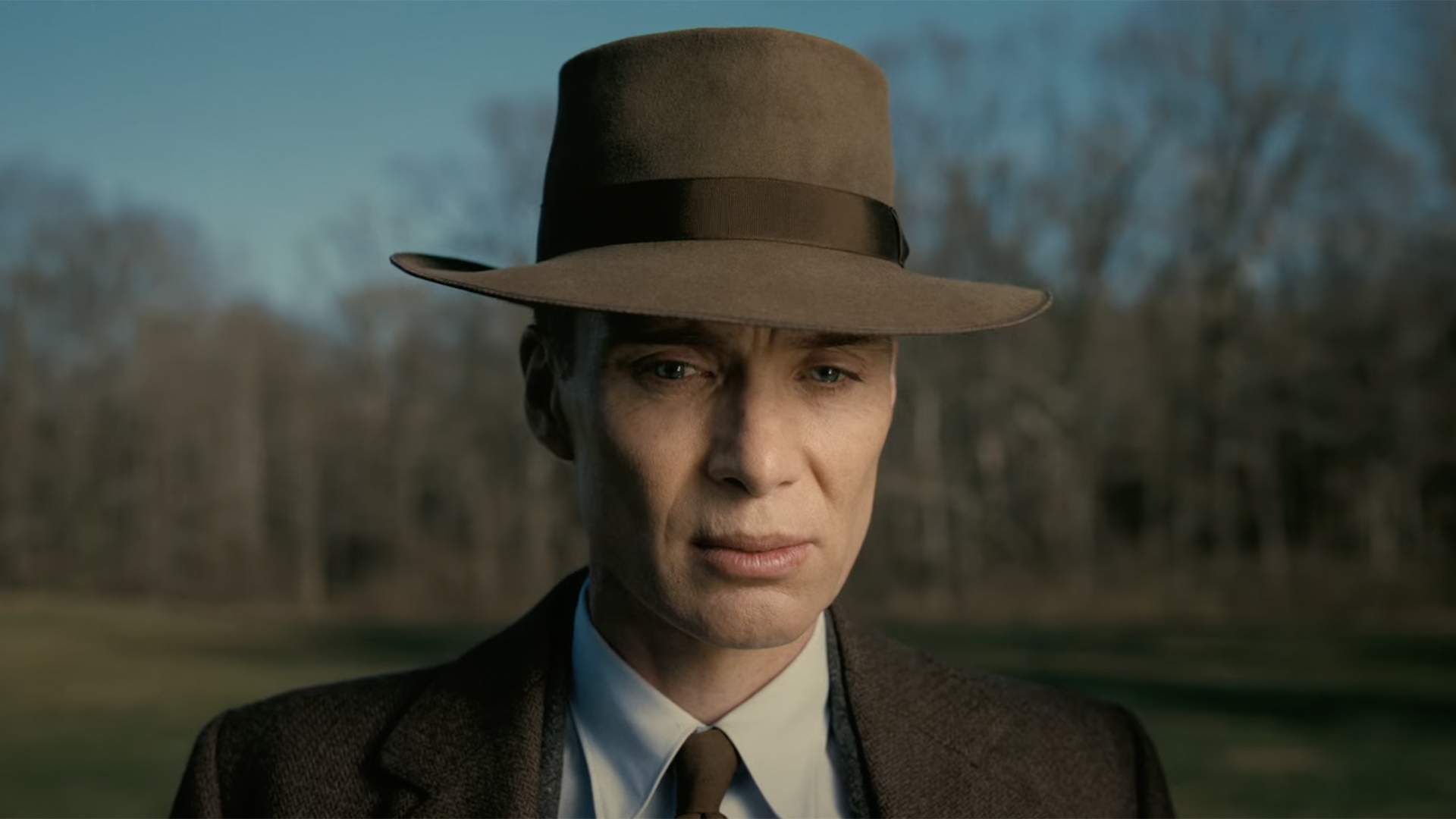This piece was written during the 2023 SAG-AFTRA strikes. We stand with the SAG-AFTRA. Without them, the movies and television shows we cover would not exist.
Christopher Nolan is a director who can bring viewers to the theater, and his latest film earns a continuation of that trend. Oppenheimer is a work of incredible power and precision. It has a deep bench of talent in the cast, and the story teases out the most profound aspects of one of the definitive personalities of the 20th century.
As most people probably know, J. Robert Oppenheimer was the physicist who led the Los Alamos Laboratory of the Manhattan Project to develop the first nuclear weapons. Cillian Murphy plays him in this film. Nolan also wrote the script here, adapted from the Pulitzer Prize-winning biography American Prometheus by Kai Bird and Martin Sherwin. The film is a true biopic, touching on many years in Oppenheimer’s life, but the focus is on the creation of the first atomic bomb. And Oppenheimer’s moral struggle with that, of course. Many people surround the great scientist and affect his life, but this is undeniably his perspective. And it’s the most cinematic way to present this story.
Oppenheimer presents one of mankind’s seminal moments in extraordinary visual terms. The direction is exquisite, and the performances—particularly the lead one—are a thrill to watch.

“You see beyond the world we live in.”
This film is loosely structured around a couple of hearings. The first is the 1954 hearing with the Atomic Energy Commission, where Oppenheimer sought to regain his security clearance. Through the testimony of him and others, we learn how Oppenheimer interacted with other scientists, the women in his life, and more.
In the post-war years, the specter of Communism reared its head, and Oppenheimer’s distant ties to sympathizers came under scrutiny. Oppenheimer became vocal about nuclear disarmament after the bomb he helped create ended World War II and changed the world forever. This speaking out earned him political enemies. The script here is subtle but effective at lending him a touch of naivete about that issue early on. He just focuses on the science.
And so does Nolan. Or, at least, he focuses on the impact of the science, both on Oppenheimer and history itself. Nolan uses impressive imagery and sound to emphasize Oppenheimer’s fraught struggle with the moral implications of the work he’s done. Murphy’s performance is marvelous at conveying this internal unease. It is phenomenal, truly award worthy.

“It’s paradoxical, and yet it works.”
The second hearing the film is focused on is the 1959 Senate confirmation hearings for Lewis Strauss’ nomination for Secretary of Commerce. Strauss was a member, and later chairman of the Atomic Energy Commission. He functions as an adversary to Oppenheimer here, where he’s played by Robert Downey Jr. It’s inspired casting. Downey gives what is probably the best performance of his career here, and I won’t be surprised if awards nominations are in his future, too.
The way this film is written highlights something I’ve always enjoyed about Nolan’s films. He finds ways to craft a story according to a chronology that’s not based on time but on other things, like theme or emotion. You’d think the resolution for this story would come with the successful Trinity test of the bomb. The director does create an unforgettable sequence for that, but this film is more interested in Oppenheimer’s interior resolution.
Stories with this many scenes of people—mostly men—just sitting in a room talking shouldn’t be this interesting, and yet, this film always is. For all of its LONG run time. That’s a testament to Nolan’s skills as a director and writer, as well as the many talented actors and behind-the-camera artisans he’s assembled. Oppenheimer is a superb biopic of one man, but it could almost serve as a biopic for a new phase of humanity itself. It’s that good.
Oppenheimer is now in theaters.

